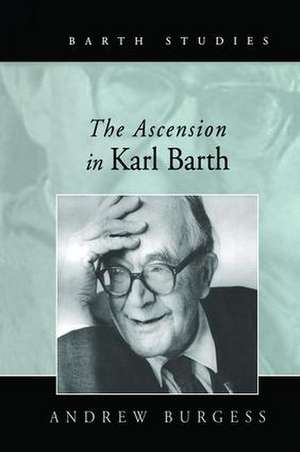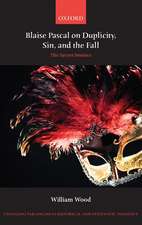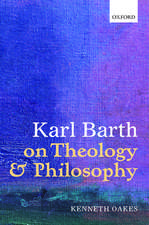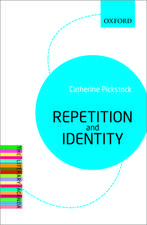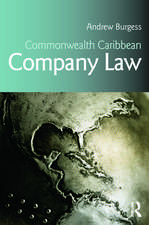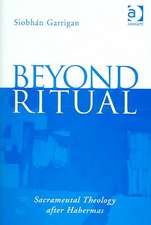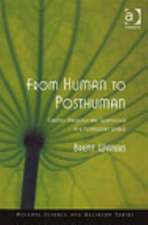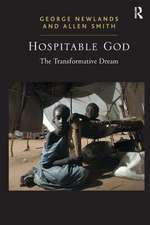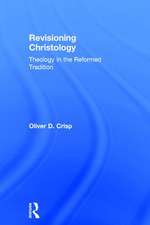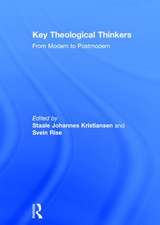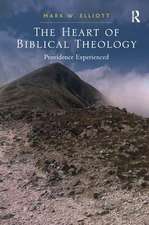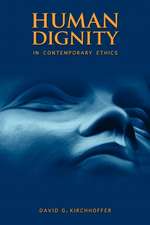The Ascension in Karl Barth: Barth Studies
Autor Andrew Burgessen Limba Engleză Paperback – 16 mai 2017
| Toate formatele și edițiile | Preț | Express |
|---|---|---|
| Paperback (1) | 416.22 lei 6-8 săpt. | |
| Taylor & Francis – 16 mai 2017 | 416.22 lei 6-8 săpt. | |
| Hardback (1) | 1001.84 lei 6-8 săpt. | |
| Taylor & Francis – 6 iul 2004 | 1001.84 lei 6-8 săpt. |
Din seria Barth Studies
- 20%
 Preț: 184.81 lei
Preț: 184.81 lei -
 Preț: 389.38 lei
Preț: 389.38 lei - 18%
 Preț: 336.35 lei
Preț: 336.35 lei -
 Preț: 469.34 lei
Preț: 469.34 lei -
 Preț: 469.34 lei
Preț: 469.34 lei -
 Preț: 242.07 lei
Preț: 242.07 lei -
 Preț: 379.75 lei
Preț: 379.75 lei - 13%
 Preț: 338.33 lei
Preț: 338.33 lei -
 Preț: 469.34 lei
Preț: 469.34 lei -
 Preț: 489.26 lei
Preț: 489.26 lei -
 Preț: 489.26 lei
Preț: 489.26 lei -
 Preț: 469.34 lei
Preț: 469.34 lei -
 Preț: 389.38 lei
Preț: 389.38 lei -
 Preț: 482.62 lei
Preț: 482.62 lei -
 Preț: 381.51 lei
Preț: 381.51 lei -
 Preț: 385.47 lei
Preț: 385.47 lei -
 Preț: 383.71 lei
Preț: 383.71 lei
Preț: 416.22 lei
Nou
Puncte Express: 624
Preț estimativ în valută:
79.65€ • 82.85$ • 65.76£
79.65€ • 82.85$ • 65.76£
Carte tipărită la comandă
Livrare economică 15-29 aprilie
Preluare comenzi: 021 569.72.76
Specificații
ISBN-13: 9781138258853
ISBN-10: 1138258857
Pagini: 218
Dimensiuni: 156 x 234 x 12 mm
Greutate: 0.45 kg
Ediția:1
Editura: Taylor & Francis
Colecția Routledge
Seria Barth Studies
Locul publicării:Oxford, United Kingdom
ISBN-10: 1138258857
Pagini: 218
Dimensiuni: 156 x 234 x 12 mm
Greutate: 0.45 kg
Ediția:1
Editura: Taylor & Francis
Colecția Routledge
Seria Barth Studies
Locul publicării:Oxford, United Kingdom
Cuprins
Contents: Introduction; Part I Karl Barth on Jesus' Ascension and Heavenly Session: The shape of Barth's theology; The doctrine of the Ascension; Ascension and the Church; Ascension and the Christian; Conclusion to Part I. Part II Dialogues: Thomas F. Torrance; Douglas Farrow: Ascension, Church, and Karl Barth; Robert Jenson: Trinity, Ascension, and Ecclesiology; Conclusion: the Ascended Lord. Bibliography; Index.
Notă biografică
Andrew Burgess is Vicar of All Saints Anglican Church, Nelson, New Zealand.
Recenzii
'This is a splendid analysis of a curiously neglected theme in the theology of Barth, which shows the significance of the ascension in Barth’s overall presentation of the person and work of Christ in the Church Dogmatics, and engages in lively dialogue with major recent studies of the doctrine of Christ’s exaltation. It is an excellent guide not only to Barth’s thinking but also to some central preoccupations in the theology of salvation and its effectiveness in human time.' Professor John Webster, Christ Church, Oxford, UK '... Burgess offers an interesting new way of reading Barth's theology, and he rightly highlights the importance of the agency of the risen Jesus in Barth's thought. As an interpretation of Barth, then, this book is valuable...' Faith and Theology '... Burgess offers an interesting new way of reading Barth's theology... As an interpretation of Barth, then, this book is valuable.' Princeton Theological Seminary
Descriere
This book explores the doctrine of ascension, and Barth's ascension thought in particular. First, it examines the doctrine of Jesus Christ's ascension into heaven, presenting a sustained discussion of Karl Barth's approach to this doctrine and the significance of the doctrine within his theology as a whole. Secondly, through examining Barth's ascension thought and dialoguing with three other theologians (Torrance, Farrow and Jenson), a clearer understanding of Barth and his theology is achieved. The treatment of issues related to Christ's ascension across a broader (protestant) perspective increases the relevance and usefulness of this unique study. Andrew Burgess presents the doctrine of the ascension as an important and undervalued doctrine and encourages Christians to see how, like Barth, they might benefit in their ability to think coherently about the present age and about Jesus in relation to this age, enabling further thought about the work of the Holy Spirit, the church, and Christian ethics.
